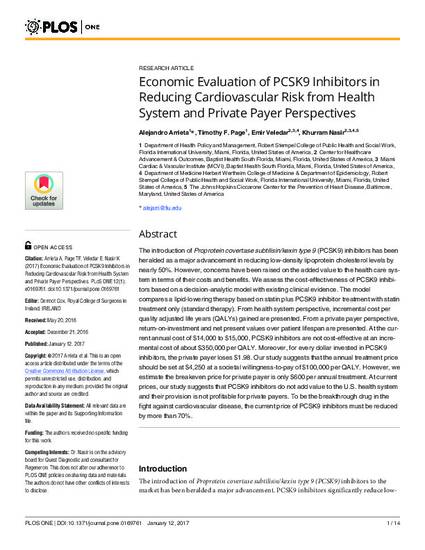
The introduction of Proprotein covertase subtilisin/kexin type 9 (PCSK9) inhibitors has been heralded as a major advancement in reducing low-density lipoprotein cholesterol levels by nearly 50%. However, concerns have been raised on the added value to the health care system in terms of their costs and benefits. We assess the cost-effectiveness of PCSK9 inhibitors based on a decision-analytic model with existing clinical evidence. The model compares a lipid-lowering therapy based on statin plus PCSK9 inhibitor treatment with statin treatment only (standard therapy). From health system perspective, incremental cost per quality adjusted life years (QALYs) gained are presented. From a private payer perspective, return-on-investment and net present values over patient lifespan are presented. At the current annual cost of $14,000 to $15,000, PCSK9 inhibitors are not cost-effective at an incremental cost of about $350,000 per QALY. Moreover, for every dollar invested in PCSK9 inhibitors, the private payer loses $1.98. Our study suggests that the annual treatment price should be set at $4,250 at a societal willingness-to-pay of $100,000 per QALY. However, we estimate the breakeven price for private payer is only $600 per annual treatment. At current prices, our study suggests that PCSK9 inhibitors do not add value to the U.S. health system and their provision is not profitable for private payers. To be the breakthrough drug in the fight against cardiovascular disease, the current price of PCSK9 inhibitors must be reduced by more than 70%.

Originally published in PLoS One.